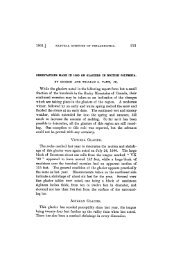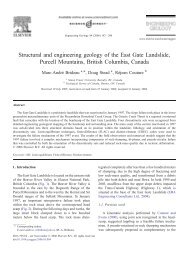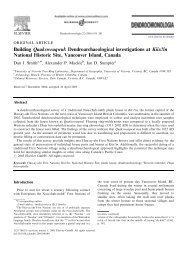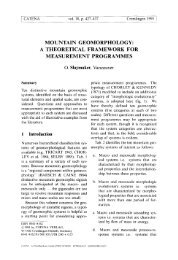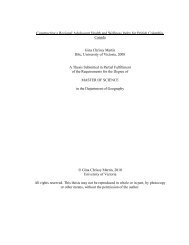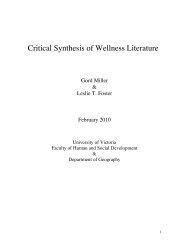Sustainable Food Production, Consumption, and the Generation of
Sustainable Food Production, Consumption, and the Generation of
Sustainable Food Production, Consumption, and the Generation of
You also want an ePaper? Increase the reach of your titles
YUMPU automatically turns print PDFs into web optimized ePapers that Google loves.
motivations to purchase food products that can be recycled were primarily based on social <strong>and</strong><br />
environmental responsibility. The awareness <strong>and</strong> concern for l<strong>and</strong>fill space <strong>and</strong> resource<br />
conservation was a common response.<br />
When asked if <strong>the</strong> participant was willing to spend more for a product that has<br />
environmentally friendly packaging, approximately half (27 out <strong>of</strong> 60) <strong>of</strong> <strong>the</strong> respondents<br />
reported yes, <strong>and</strong> just under half (25 out <strong>of</strong> 60) reported sometimes. Ten percent (6 out <strong>of</strong> 60) <strong>of</strong><br />
<strong>the</strong> participants reported that would not be willing to spend more for environmentally friendly<br />
packaging. Only 3 <strong>of</strong> <strong>the</strong> participants purchase <strong>the</strong> lowest priced food product, regardless <strong>of</strong> its<br />
impact on <strong>the</strong> environment, with 17 reporting that economic incentives were sometimes a factor<br />
in <strong>the</strong> decision to purchase food products. Research indicates that although consumer beliefs<br />
about <strong>the</strong> consequences <strong>of</strong> recycling <strong>and</strong> waste prevention are mediated through attitudes,<br />
perceived personal costs still have a direct influence on behaviour (Togersen, 1997).<br />
The majority <strong>of</strong> respondents expressed environmental concern as <strong>the</strong> incentive to reduce<br />
or avoid food packaging waste. The most common responses were to avoid products that use<br />
excessive packaging, buy bulk foods, bring own bags, purchase products that are made with<br />
recyclable/re-usable packaging, <strong>and</strong> recycle packaging. Economic motivations were also a<br />
common response as an active method <strong>of</strong> reducing food packaging waste. Social responsibility<br />
was expressed as a motivation to reduce food packaging waste for some participants by choosing<br />
products responsibly, <strong>and</strong> purchasing fresh produce from local farmers to avoid excessive<br />
packaging.<br />
Almost all participants (50 out <strong>of</strong> 60) believe that recycling as a waste reduction strategy<br />
is not enough to reduce food packaging waste. The most frequent suggestions included<br />
increased producer responsibility <strong>and</strong> consumer awareness. A few (5 out <strong>of</strong> 60) responded that<br />
<strong>the</strong>y did not know if recycling alone is an effective strategy to reduce packaging waste. Only 2<br />
respondents believed that recycling was sufficient for reducing food packaging waste.<br />
Most respondents (43 out <strong>of</strong> 60) feel responsible for <strong>the</strong> waste <strong>the</strong>y generate, while 3<br />
respondents felt in no way responsible. Respondents who didn’t feel responsible for <strong>the</strong>ir waste<br />
hold <strong>the</strong> manufactures <strong>and</strong> producers accountable for creating <strong>the</strong> products in <strong>the</strong> first place.<br />
Numerous strategies were given as suggestions to reduce food packaging waste<br />
commonly falling into environmental, economic <strong>and</strong> social categories respectively. Many<br />
28




